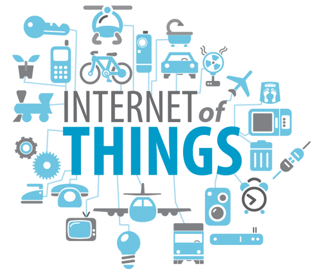If you have a fear of technology, your worst nightmare may be coming to fruition sooner than you may have hoped thanks to the Internet of Things. Although this major up and coming telecommunication advancement raises questions about artificial intelligence, it is expected to improve efficiency across all sectors of business and matters of personal life.
raises questions about artificial intelligence, it is expected to improve efficiency across all sectors of business and matters of personal life.
What Is the Internet of Things?
The Internet of Things (IoT) will use wireless networks to connect most devices, particularly those that collect data that can be shared. These items act as sensors, detecting activity that can be transmitted to other devices in the network. For example, your smartphone will communicate with your coffee maker, your car with your smart watch, and even your laptop with your refrigerator.
While each individual may have his or her own system of sensors, each network is part of an even larger, more connected network. This overarching system of connectivity will allow for an enhanced relationship between the the digital and physical worlds. Having a more bridged, technology based reality will make things more automatic, helping to improve the efficiency of everything that you could imagine.
How Does It Work?
Any device that has the capability to connect to a network has the potential to contribute to the Internet of Things. Essentially, the more connected you are through the use of technology, the more coordination you will experience.
The technology is projected to be adaptive and even predictive of your hobbies, health and current mood, tailoring your environment to best suite your needs at the moment. A common example used for this is a person leaving their home to go for a run; they bring their smartphone with them to listen to music and track their workout, and when they near their home again, their smartphone is able to communicate with the home to turn the air conditioning up, allowing the runner to experience a nice, cool home when they walk in the door.
The sensors in your devices allows personalization to follow you everywhere: the office, your car, the grocery store and back home again.
The Internet of Things is expected to work to inform you constantly, developing new insights to maximize performance. The anticipation of adapting to your preferences makes the distinction between reality and the digital world practically extinct.
Challenges of IoT
Having the internet of things to support daily, everyday living can simplify life. This same attribute can be used in the professional world. Any industry could benefit from this technology, the only obstacle restricting IoT is the amount of resources needed for the system to thrive.
The Internet of Things is extremely dependent on broadband networks and their connections to the Internet. This need will require the establishment and maintenance of stable and widely available internet networks, wired or wireless.
The reliance on the internet also means that the IoT is vulnerable to internet attacks. In order to best protect users, IoT will need more internet security to guarantee privacy in the digital realm.
To learn more about the Internet of Things or wireless networking in general, contact Chicago Communications today!



